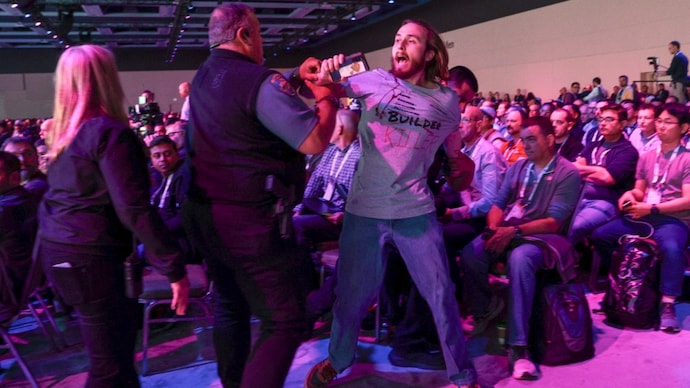Microsoft has terminated employee Joe Lopez, a firmware engineer in Azure Hardware Systems and Infrastructure (AHSI), after he disrupted CEO Satya Nadella’s keynote speech during the Build 2025 event. Lopez interrupted Nadella, saying, “Satya, how about you show how Microsoft is killing Palestinians?” and “How about you show how Israeli war crimes are powered by Azure?” He was immediately escorted out of the event.
Lopez subsequently sent a mass email to his colleagues explaining his actions and disputing Microsoft’s claims about Azure’s use in Gaza. In the email, he stated that Microsoft has “immeasurable power to do the right thing” and demanded an end to what he called the company’s facilitation of Israel’s “ethnic cleansing of the Palestinian people.”
Background and Context
The incident was not an isolated one. Lopez’s protest was followed by other disruptions at the Build 2025 event, with at least three addresses being interrupted by pro-Palestine protesters. Demonstrators also gathered outside the event venue in Seattle.
This is not the first time Microsoft employees have protested the company’s involvement with Israel. In April, Vaniya Agrawal interrupted Nadella, Steve Ballmer, and Bill Gates at Microsoft’s 50th anniversary celebration, criticizing the company’s alleged role in Israel’s actions in Gaza. Another engineer, Ibtihal Aboussad, disrupted a Microsoft AI event, saying “Mustafa, shame on you” to AI CEO Mustafa Suleyman. Both Agrawal and Aboussad were terminated.
Microsoft’s Response and Internal Actions
Following these incidents, Microsoft reportedly began filtering internal emails containing words like “Palestine,” “Gaza,” and “genocide” to prevent discussions about these topics on their Exchange servers.
Lopez’s email also addressed Microsoft’s recent blog post claiming that an internal audit found no evidence of Azure and AI technologies being used to harm people in Gaza. Lopez dismissed this as “falling far short” of what was needed, questioning the transparency and credibility of the audit.

The company’s actions have sparked controversy, with critics questioning the balance between corporate interests and employee freedom of expression on sensitive geopolitical issues.


